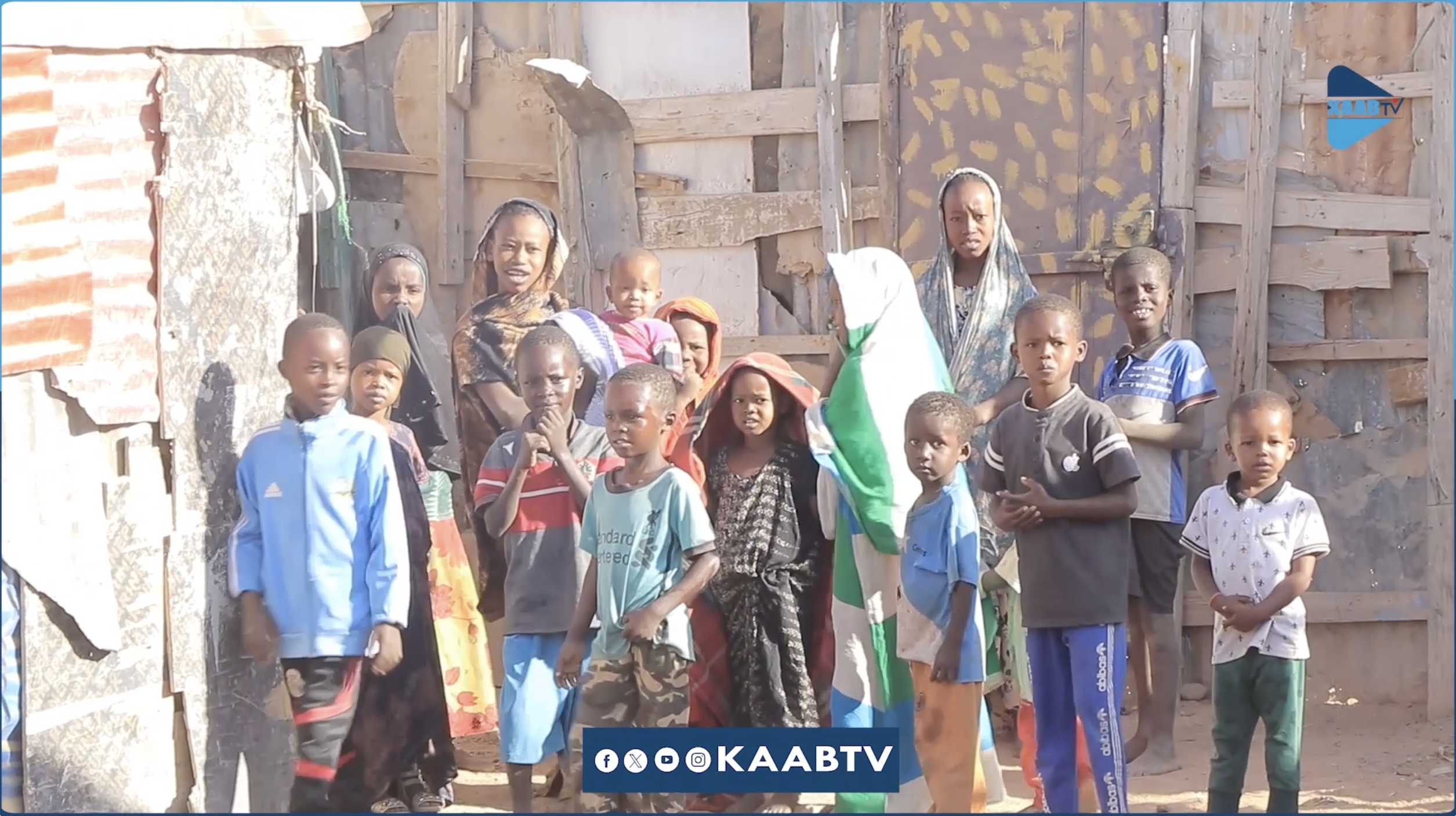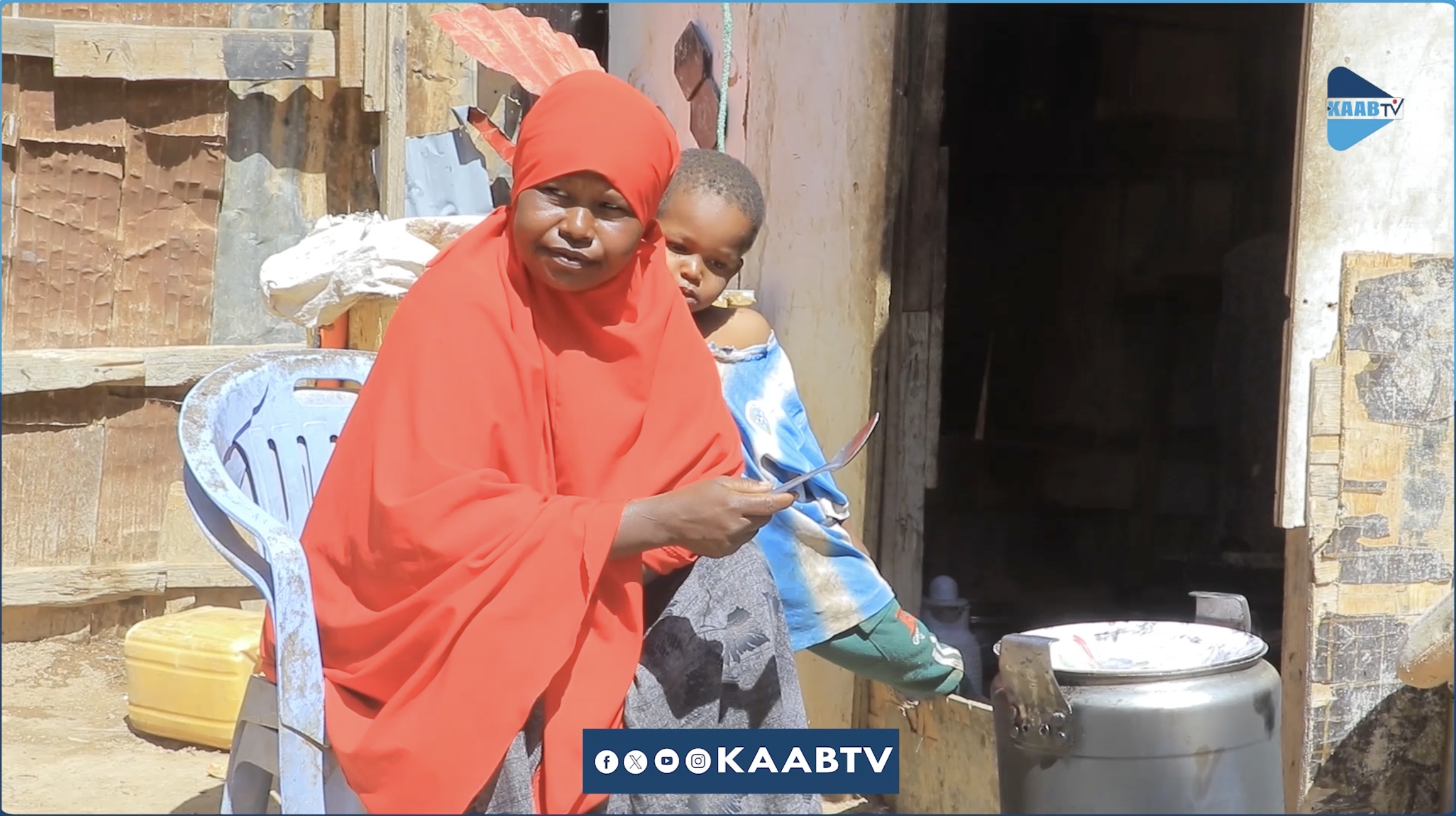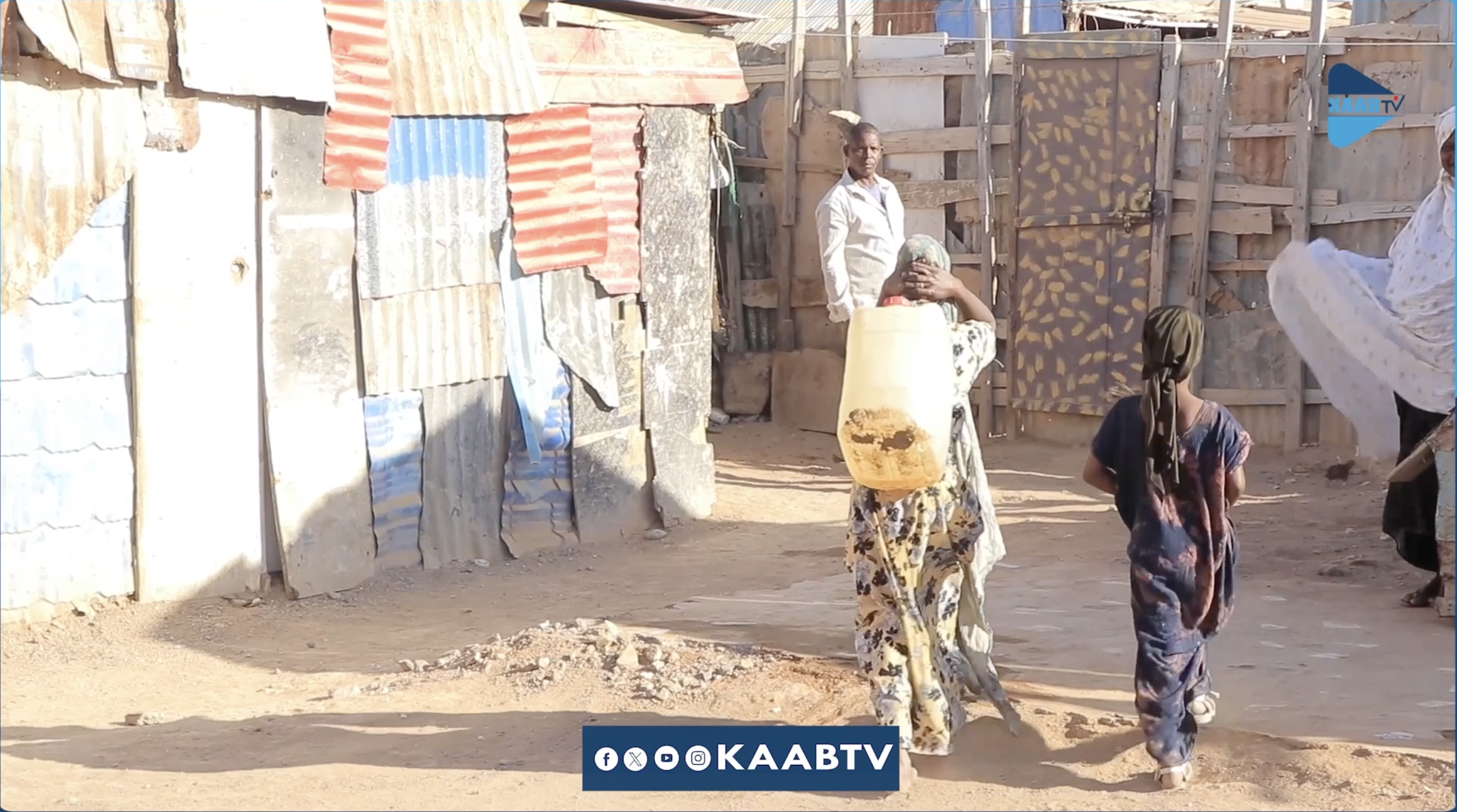GAROWE (Kaab TV) – The Shabelle camp, located on the outskirts of Garowe, is home to thousands of people who have been displaced from various regions of Somalia.
The camp, a sprawling maze of makeshift shelters built from scraps of wood and torn metal sheets, is a stark reminder of the challenges faced by Somalia’s internally displaced population.
As of May 2023, an estimated 75,000 internally displaced people (IDPs) were living in Garowe, the capital of Puntland. This marked a significant increase compared to the previous year, according to the United Nations.
The majority of the IDPs originate from southern and central Somalia, having been displaced primarily by drought and conflict.
Puntland remains relatively more peaceful compared to southern Somalia, making it a preferred destination for those seeking safety.
For the residents of Shabelle, every day is a struggle for basic necessities—food, water, and shelter.
Education, often seen as a beacon of hope for the future, remains an unattainable dream for the camp’s children.
During the day, boys roam the dusty streets of the camp, their laughter echoing as they play with old, discarded car tires.
Girls, on the other hand, are burdened with fetching water, carrying heavy jerrycans on their backs under the scorching sun.
There are no classrooms here, no teachers, no books.
For the hundreds of children living in Shabelle, school is not just out of reach; it is nonexistent.

Faadumo Halane, a resilient mother of 11 children, has been living in the Shabelle camp for eight years.
Before settling here, she spent 11 years in another displacement camp, which, like Shabelle, lacked any educational facilities.
Despite her efforts to provide for her children, Faadumo finds herself helpless when it comes to their education.
“I have been living here for eight years. We have no school,” Faadumo said, her voice tinged with frustration and sadness. “I came from another camp where I lived for 11 years, and there was no school there either.”
Six of Faadumo’s children are of school-going age, but none of them have ever set foot in a classroom.
Instead, they spend their days helping their mother or wandering the camp’s dusty pathways.
Faadumo, like many parents in the camp, dreams of a better future for her children—a future where they can read, write, and break free from the cycle of poverty that binds them.

Sitting in the open sun outside her makeshift home, Faadumo tends to a steaming pot over a charcoal fire.
The aroma of the simple meal wafts through the air as her youngest son stands by her side, eagerly waiting.
Her weathered face reflects years of hardship, but her determination remains unshaken.
“We are requesting that a school be built in the camp,” she said, pausing to stir the pot. “Our children deserve a chance at a better life. Without education, they have no future.”
Irsho Omar Kaani, another mother living in the camp, echoed Faadumo’s sentiments.
She explained that while schools exist in Garowe, the fees make them inaccessible to displaced families like hers.
“We have lost the financial ability to send our children to school,” Irsho said. “We can’t afford it. We need support to educate our children.”
The absence of education in the camp has broader implications for the community.
Mohamed Abdirahman, a teacher at a school in Garowe, highlighted the vulnerabilities faced by uneducated children.

“Children who don’t attend school are more susceptible to criminal activities,” Mohamed explained. “Education shapes children and sets them on the right path.”
Habib Abdullahi Isse, a human rights lawyer, emphasized the collective responsibility to address this crisis.
“Education is a constitutional right and a shared responsibility,” he said. “It is also the government’s duty to provide education to displaced children who are part of our community. It is their right.”
The head of the Shabelle camp, Aadan Adde, believes that establishing a school within the camp would transform the lives of its residents.
“The main challenge is that education in the city is fee-based,” Aadan said. “If a school were set up within the camp, the children would attend.”
Recognizing the urgency of the situation, Daahir Khalif Saciid, head of the education department for the Nugaal region administration, outlined plans to address the educational gap.
“We will conduct awareness campaigns, along with the regional administration and local government, to reach children who are not receiving education,” Daahir said. “Our goal is to create opportunities for every child, regardless of their circumstances.”
The residents of Shabelle camp continue to hope for change. For mothers like Faadumo and Irsho, a school in the camp would be more than just a building; it would be a lifeline, a chance to secure a brighter future for their children. Until then, the dusty streets and makeshift homes of Shabelle remain a stark testament to the unfulfilled potential of countless young lives.

